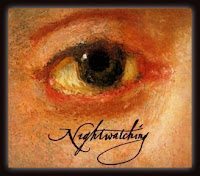“Women in the
17th century are allowed to smoke, write, correspond with Descartes, wear
spectacles, insult the Pope, and breast-feed babies.” -Titia Uylenburgh
“There is no
history there are only historians…” -Peter Greenaway
From 1600-1680 we can put forward a compelling claim
that Rembrandt is the greatest painter since the Renaissance and, that in the
1640’s Amsterdam is the center of the world, a city on the make with the foxes in the hen house.
The film Nightwatching
is a creative response to Rembrandt's famous painting known as “The Night
Watch” in a sense an
extension of the painting. It dramatises the idea that this picture is a
bristling, encoded denunciation of the grand gentlemen who commissioned it –
that it effectively accuses them of being murderers, villains, rapists and
thieves, and that Rembrandt's furious patrons vengefully connived at the
artist's social and financial ruin.
In the movie someone says to Rembrandt of his
painting: "You have made a frozen moment of theatre!" That could
stand for a general description of Greenaway's film, but for the genuinely
affecting account of Rembrandt and Saskia and the shadow of death that comes between
them.
This intriguing and revelatory blend of human drama
and art-history detective work deftly combines character study and cultural
documentary shaped around a truly expressive performance from Martin Freeman as
Rembrandt. What’s surprising (in the context of the filmmaker's often chilly past
oeuvre) is the film’s genuine compassion for the sufferings of wives, maids and
vulnerable orphans, adding an emotive underpinning to its sharp observations on
the purpose of art and the nature of representation.


